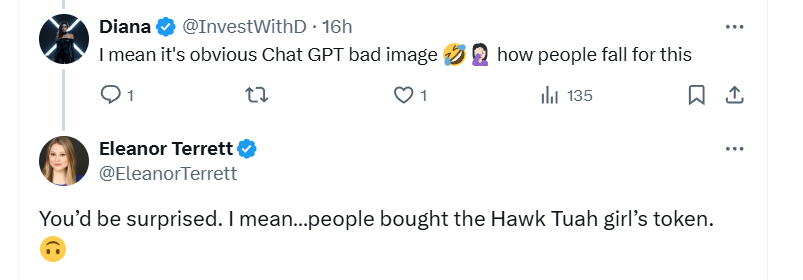— إليانور تيريت (@EleanorTerrett) 8 ديسمبر 2024
The fabricated report, dated December 5, was accompanied by a Fox News image that observers noted appeared AI-generated.
Terrett: BlackRock token is fake
According to the FOX News correspondent, the article promoting the fake BlackRock Token presale was designed to appear credible and persuasive, targeting crypto enthusiasts with promises of an exclusive investment opportunity.
As seen in the pictures Terrett shared, the article urged readers not to “miss out on this historic opportunity” and directed them to a website to purchase the fraudulent tokens before the presale concluded.
The site is meant to present itself as a legitimate source of information, offering step-by-step guides on how to acquire the tokens. It also detailed the tokenomics, utility, and benefits of the so-called BlackRock Token (BRT).
Website visitors are greeted with baseless promises that buyers will receive a 20% annual staking token reward, referral bonuses and rewards, and VIP membership access, among others.

Additionally, the website includes fabricated updates on presale milestones and upcoming developments, further attempting to create a sense of legitimacy and urgency.
One user on X said they wondered how people would believe the scam, calling it an “obvious Chat GPT bad image,” to which Eleanor replied, “You’d be surprised. I mean…people bought the Hawk Tuah girl’s token.”

There’s been a growing trend of fake news related to crypto tokens in recent times. On December 8, the Cardano Foundation’s official X account was reportedly hacked. The perpetrators used the account to publish a fake US Securities and Exchange Commission lawsuit and a scam Solana-based token dubbed “ADASOL.”
Per DexScreener data, the token’s trading volume reached $500,000 worth within an hour of the posting.
AI cryptocurrency scams are growing threats
Over the years, scammers using artificial intelligence have significantly advanced their tactics to steal cryptocurrency from investors. In 2023 alone, crypto-related fraud complaints rose by 45%, resulting in over $5.6 billion in reported losses.
AI technology allows scammers to monitor user behavior online, tailoring schemes to exploit individual investment patterns and cryptocurrency involvement. This personalization increases the chances of success as fraudsters craft convincing narratives targeting specific users.
Moreover, AI enables mass automation, allowing scammers to reach thousands of potential victims simultaneously. Each unsuccessful attempt feeds back into machine learning algorithms, enabling real-time improvements to their strategies. This adaptability creates a dangerous dynamic where scams can evolve faster than security measures can respond.
The financial implications of these scams are staggering. Research from the Motley Fool shows that In the first half of 2024, scams involving cryptocurrency as a payment method cost consumers $679 million.
A notable example of this trend occurred in New Zealand, where a 72-year-old grandmother, Jill Creasy, lost $224,000 after falling victim to an AI-generated deepfake video. As reported by local news sources, the video featured a convincing likeness of Prime Minister Christopher Luxon, falsely promoting Bitcoin investments as a means for pensioners to boost their income.
The scam, which circulated on Facebook in July, also involved fabricated endorsements from TVNZ broadcaster Jenny-May Clarkson and Deputy Prime Minister Winston Peters. The deepfakes were so convincing that they prompted a public warning from New Zealand’s Financial Markets Authority weeks later.
Land a High-Paying Web3 Job in 90 Days: The Ultimate Roadmap